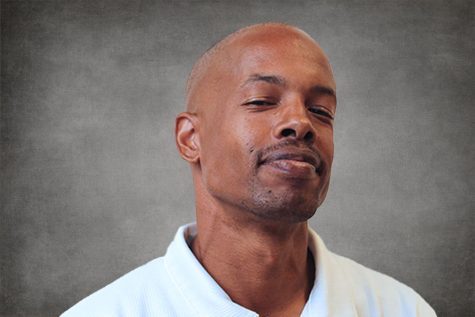Merits of greatest modern athlete ignored
Williams’ influence in sports is eclipsed by ignorant perception
Feb 14, 2017
Black History Month, more than any of the other signature months, is a time for lists.
Talk about the “first black this, greatest black that” simultaneously enlightens the public to feats of excellence and diminishes the accomplishments of others all in the same breath.
Nevertheless, this list, naming the greatest professional athlete in the post-civil rights era consists of only one name — Serena Williams.
Many names are synonymous with modern-era athletic greatness. Michael Jordan earning six NBA championships and a portion of the Nike empire is the choice of many Americans as top athlete.
This list is all encompassing, but Michael Phelps, Tom Brady or Joe Montana couldn’t hold a candle to the industrial-sized blow torch that symbolizes Williams’ greatness.
On the tennis court, her accomplishments are unmatched.
She has earned a record 23 Grand Slam titles, six U.S. Open championships, seven Wimbledon titles, seven Australian Opens, three French Opens, four Olympic gold medals, 23 doubles titles and a career Golden Slam.
A Golden Slam is when a player wins all four major tournaments and an Olympic gold medal in one calendar year.
She made her professional debut in 1995 and in 2013 she won the Golden Slam and the AP Athlete of the Year — for the third time.
Williams embodies everything black people wanted Tiger Woods to become — an unapologetically black superstar in a sport dominated by other races. She is someone who excels in the face of bigotry.
In 2001 at Indian Wells, a tennis tournament held in California, the match all of the fans were waiting to see — a sibling rivalry against Serena’s sister Venus — was scrubbed due to a late injury to Venus which upset fans in attendance. Angry fans hurled racist remarks at Williams and her family. The lack of response from officials, following Williams’ championship- winning match, forced neither sister to return to the tournament until 2015.
“I play for the love of the game,” Serena wrote in a column published on Time.com. “And it is with that love in mind, and a new understanding of the true meaning of forgiveness, that I will proudly return to Indian Wells in 2015.”
Where Woods faltered, Williams not only thrived but used those instances to highlight injustices at home or abroad.
Off the court, the tennis star can be described as many things — an entertainer, philanthropist, mogul or any words that describe people who make life better for others.
She established the Williams Foundation, which builds schools in Kenya and provides scholarships for underprivileged youth in the U.S., among other things.
A picture of athletic perfection, Williams blends equal parts grace, power and confidence into one complete package.
From an early age, Serena faced racial criticism from the aggression in which she approached the game to the regular little black girl beads she wore in her hair.
Raised in Compton, Williams was taught to play tennis by her parents who learned the game by reading books.
As Williams developed into adulthood, she continued to dominate on the court and became a heartthrob for men worldwide.
Despite her Amazonian goddess physique and unmatched talent on the court, lesser opponents were given more marketing opportunities because of traditional blonde hair-blue eyes beauty standards.
Williams’ response was not to cry foul. She got even by signing a lucrative deal with Puma Athletics. She then wore the most memorable sports outfit from this or any millennia, the infamous 2002 catsuit.
Google it — I’ll wait.
In 2015 she became the first female athlete to appear on the cover of Vogue Magazine, alone.
In the same year she accomplished, for the second time in her career, what is colloquially known as the “Serena Slam,” when a single player holds all four major championships at the same time.
WIlliams is what we want all of our African-American athletic role models to be — thoughtful, empathetic and unapologetically black.
Robert Clinton is the sports editor of The Advocate. Contact him on Twitter @rclinton3.


